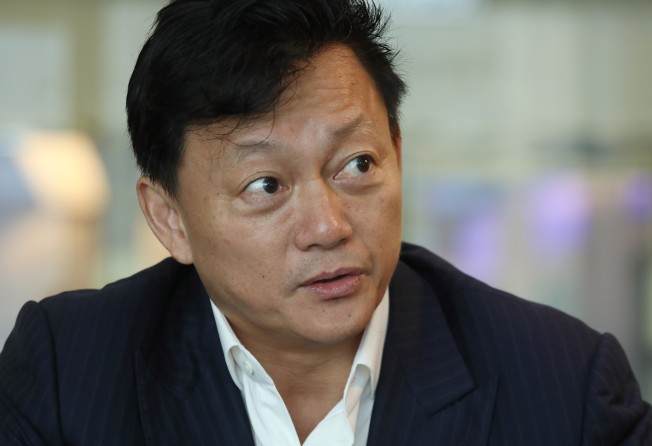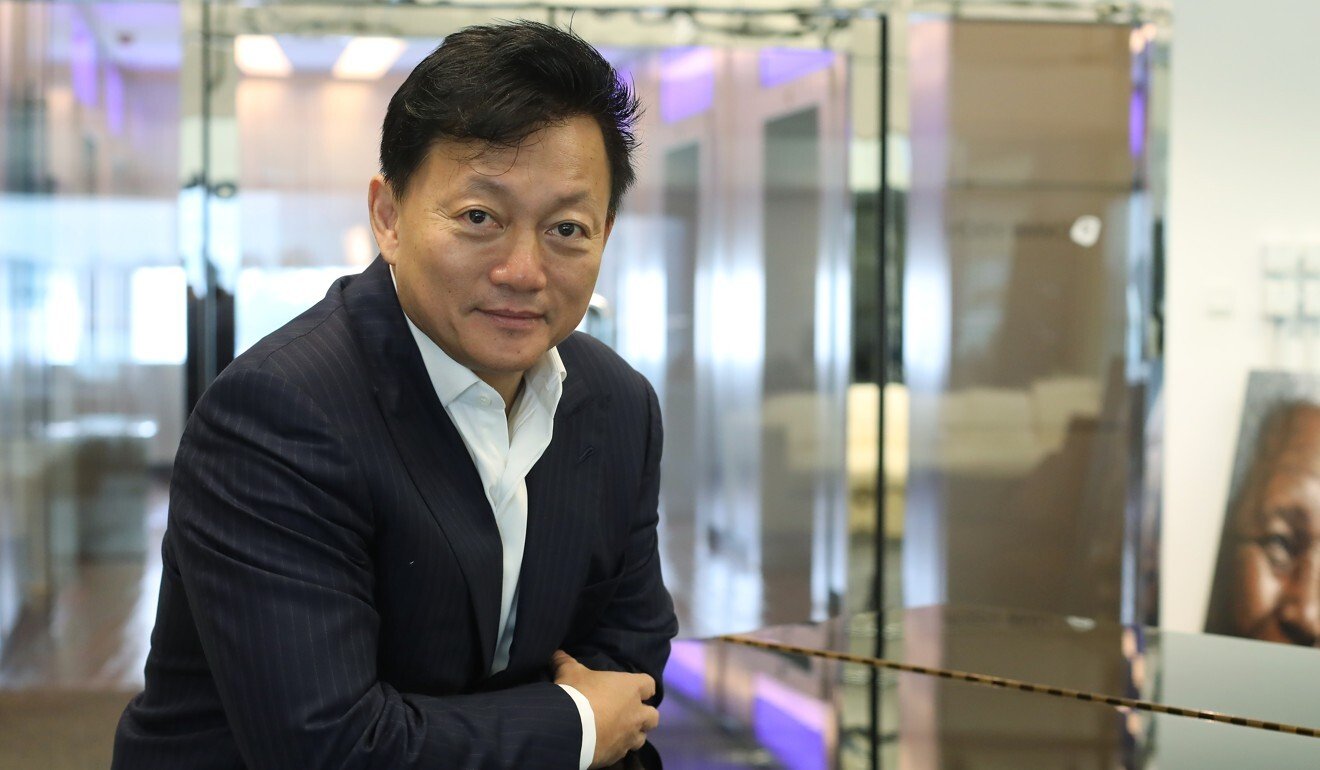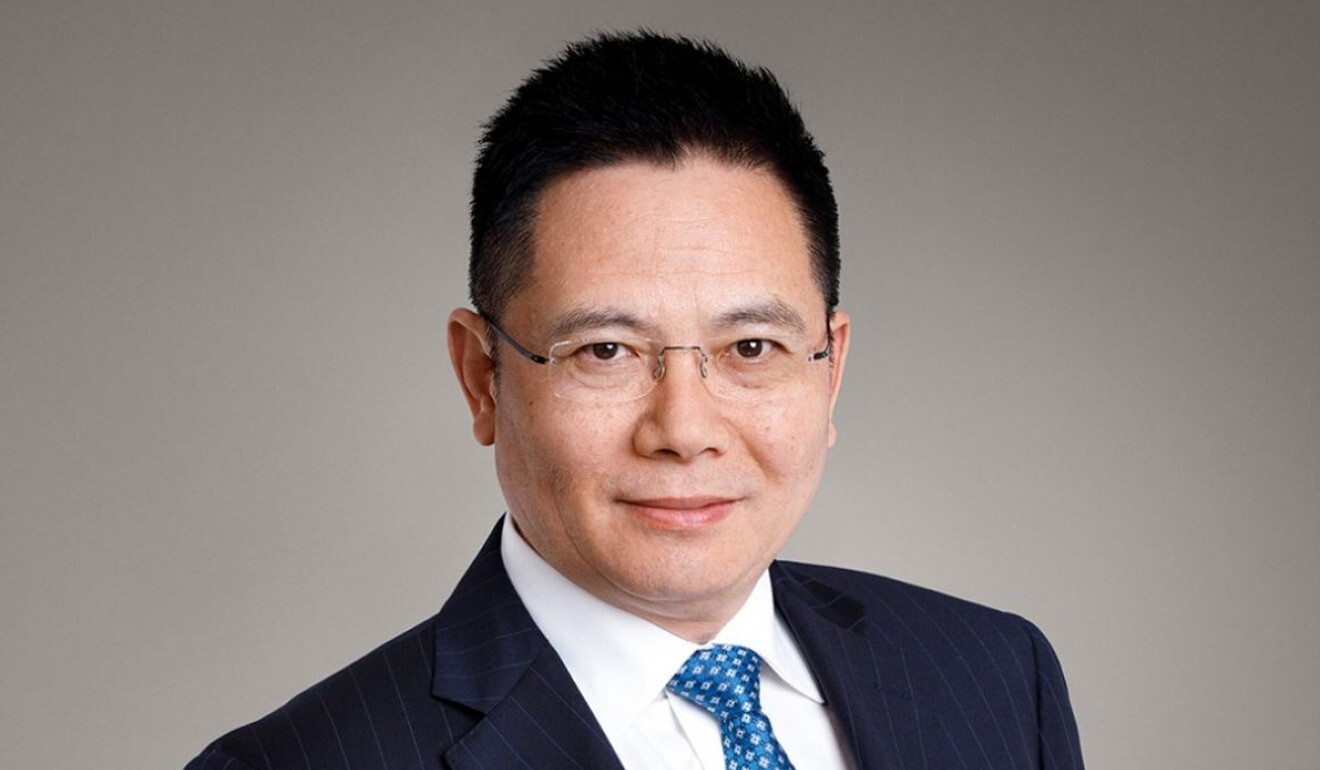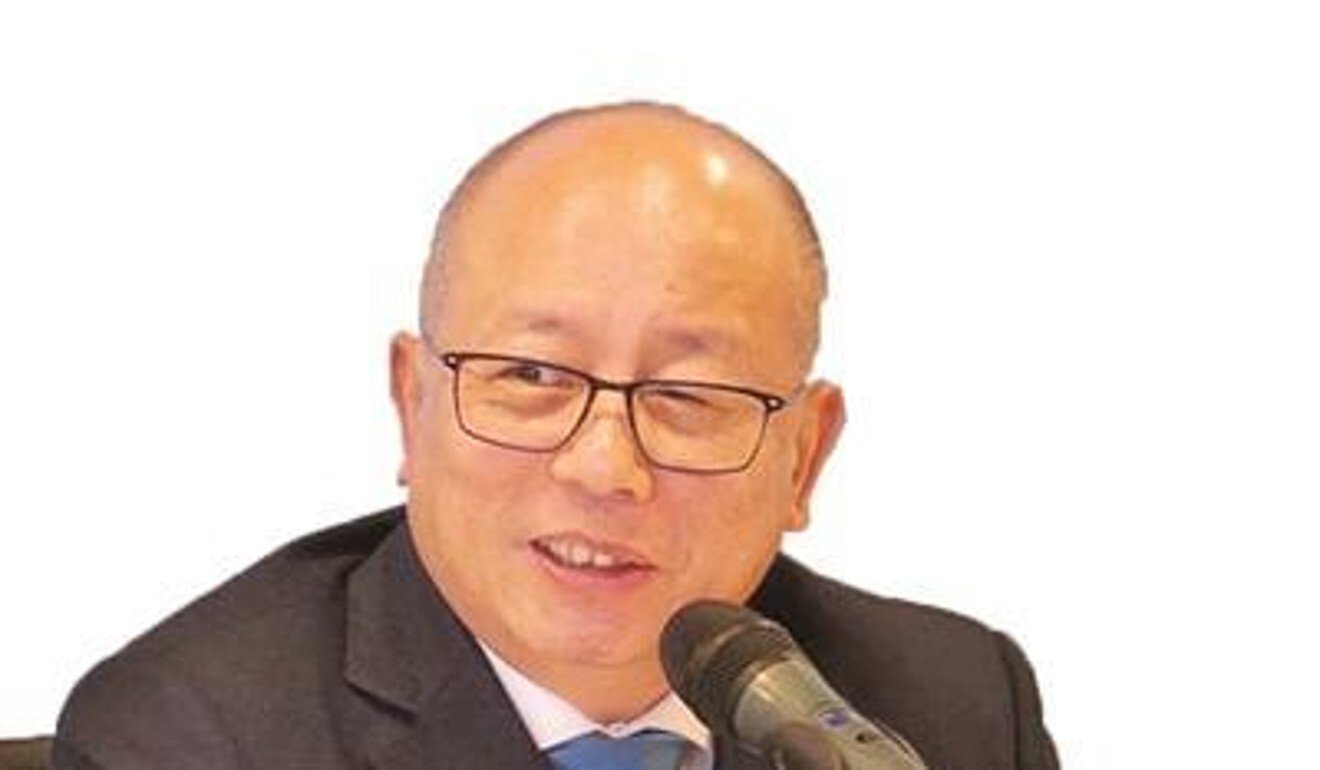Bauhinia Party co-founder: we love Hong Kong and should be on front lines to solve problems
- In this extended excerpt from a Post interview, Charles Wong lays out the vision behind the organisation seeking to transform the city’s politics
- He says both the pro-Beijing and opposition camps face hurdles in solving society’s challenges, and anyone suspicious of the Bauhinia Party should ask the only question that matters – what can it do for Hong Kong?

The almost secretive establishment of the Bauhinia Party in Hong Kong, led by three mainland-born financiers based in the city, has sent shock waves across the political divide. Questions have been raised about the party’s intentions, its members’ identities, and how it could fit into the city’s political scene following the disqualification of some opposition lawmakers and the subsequent resignations of the rest.
In an interview with the South China Morning Post, one of the co-founders, Charles Wong Chau-chi, addresses these questions, including whether its members are secret Communist Party operatives. The party’s ambition is to embrace people across the political spectrum and eventually recruit up to 250,000 members, he said.
The following is an edited excerpt of the interview.

What prompted you to set up the new party?
Last year’s political turmoil made us realise there have been a lot of issues in Hong Kong that never got addressed. A lot of social and economic issues morphed into political issues. Young people did not have avenues to properly express their discontent. And then it blew up last year.
We live here, we love it here. We should be the ones on the front line trying to resolve [these issues].
The linchpin of all the problems has something to do with governance. We have a weak government and a pro-establishment camp that is not growing. The pro-democracy camp holds a grudge against Beijing’s decision to disqualify its lawmakers, while the ‘yellow ribbons’ [supporters of the anti-government movement last year] feel hopeless about their future.
Does your party consist only of haigui – those born on the mainland, educated overseas and now working in Hong Kong? Not much is known about the three co-founders, including you.
I was born in mainland China and came here when I was young. I studied abroad, came back to Hong Kong and have worked here for a long time. Quite a few members of the party have a similar background as me. But we do not position ourselves as a group of haigui or gang piao [a term for young mainland professionals working in the city]. The only thing that linked everybody is that we all live here, and Hong Kong is our home.
I came to Hong Kong at around age 11 or 12 and lived in a subdivided flat. I went to the Diocesan Boys’ School, knocked on its door and asked the principal to admit me without recommendations from anyone. I had a chance to study in the US after getting a government scholarship. I came back to Hong Kong in 1995.
We grew up during the Cultural Revolution. How can I not know what political turmoil is? We know clearly what poverty is, since I worked in a factory when I was 14. How can I not understand the struggles of Hongkongers? Each of the founders has their own history of striving.
What types of people do you plan to recruit?
Some “blue ribbons” [those supportive of the government] are not satisfied with the performance of the pro-establishment camp and cannot find a platform to make their voices heard. This is why their number of members stays around the tens of thousands.
Who we should focus on is the roughly 80 per cent of the population who are ‘yellow’ [supporters of last year’s anti-government protests]. Some of them hope to do something constructive, but are disappointed by the camp’s confrontational approach. If you can guide those who have their grievances to see things rationally, they can help Hong Kong solve problems. Instead of counting on the elites, you have to rely on the majority in Hong Kong.
They just lack channels to vent their anger. We should not equate “yellow” with unpatriotic. That’s so far from it.
Does the party have the blessing of Beijing or its liaison office in Hong Kong?
Our party is duly registered in Hong Kong as a political party. A political party is not an ordinary company, and so we have to go through hurdles and all kinds of scrutiny, and I would naturally think the government knows about us, and probably China will also know about us.

So the liaison office backed the party before it was established? Is there communication between the two?
This is the wrong way to categorise it. Ultimately, what we want is the blessing of the Hong Kong people. If we have the blessing of the Hong Kong people, and what we are doing is really for the long-term stability and long-term prosperity of Hong Kong, can you imagine anyone, whether from Hong Kong or the mainland, not giving us their blessing?
Our chairman, Li Shan, is a political figure from the Chinese People’s Political Consultative Conference [China’s top political advisory body]. We, of course, have communications with the office. It’s just normal, and we have communications with the Hong Kong government, and we also have communications with some key individuals and different political parties.
Are your party members underground Communist Party members as some critics have alleged?
It’s not correct to judge our party on whether we have underground members or not. And we never really asked our members whether they were underground. We just look at whether they are Hongkongers and want to do things for Hong Kong.
It’s just the wrong question to ask. It’s something not relevant to our governance. It’s also overly politicising in a very negative way a political party that’s really trying to do something for Hong Kong. What they should care about is our agenda, and what we can do for Hong Kong.
What we have seen today is that peace has been restored … We still have tremendous freedom to do things we want
Will you field candidates or support anyone to run in the chief executive election? How are you going to work with pro-establishment parties?
We will do all that depending on the development of our party. Theoretically, whatever it takes, we will pursue it, whether supporting candidates who share our beliefs or whether sending our candidates for elections.
Over the past few days, many members of the pro-establishment camp complained to the liaison office about us … and asked to clarify whether our party was set up to replace them. This is not a good atmosphere.
We would love to reach out to other political parties and work with them, I don’t see it as competition at all. We basically accept everyone. I don’t really see why we should have any conflicts as long as they want the betterment of Hong Kong and they want to do things for Hong Kong.
After Beijing imposed the national security law on Hong Kong, reports suggested that Hongkongers and foreign businesses were leaving the city. What is your take on the law?
Last year’s turmoil was not simply domestic violence. It was interwoven with foreign interference, and that was something Hong Kong could not solve by itself. We are lucky to have the national security law … if we did not have an overarching security law to restore order, I don’t know what Hong Kong could have otherwise.
What we have seen today is that peace has been restored. Businesses keep coming, and we are more confident of the future of Hong Kong. We still have tremendous freedom to do things we want. What we can do better is to train talent and attract more people to come to Hong Kong.

Your party wants the ‘one country two systems’ principle extended for another 50 years. Why is it important, and has the policy already strayed from what it is supposed to be?
Putting some certainty to that [principle] would unify everybody and make what people are fighting for become meaningful. For example, if you have another 50 years during which Hong Kong will remain the same, whoever becomes a legislator or chief executive matters to me, because the policies will have a long-term impact on me. That would also unify people to support long-term, comprehensive housing plans.
With the long-term prospect of an additional 50 years, it would help Hong Kong diversify its economy and develop new industries. Young people will also have to become good neighbours of China for another 70 years, so there will be a natural incentive for them to learn more about China.
What will be among the party’s priorities after its official launch?
To call on [Chief Executive Carrie Lam Cheng Yuet-ngor] to set up a cross-sector, representative task force to study the feasibility of implementing a partial or citywide lockdown for 14 to 30 days to achieve a target of “zero infections” [of the coronavirus] for 14 days, so that the border with the mainland can be opened. This is the only way to reverse course and speed up the recovery of Hong Kong’s economy. I don’t see how many more rounds of cash subsidies the Hong Kong government can hand out if we don’t do this.